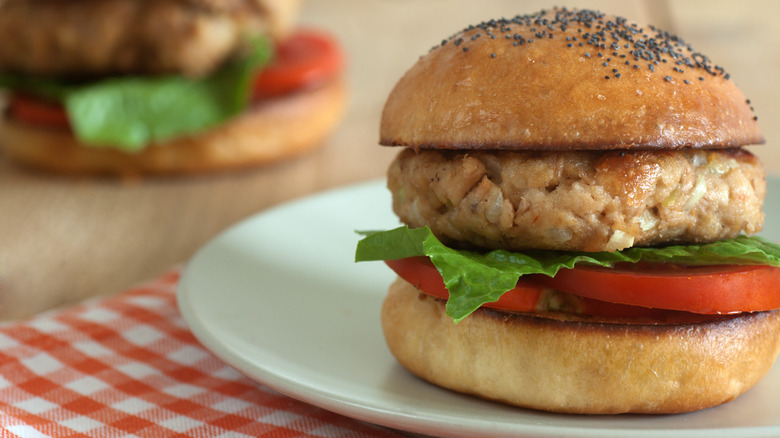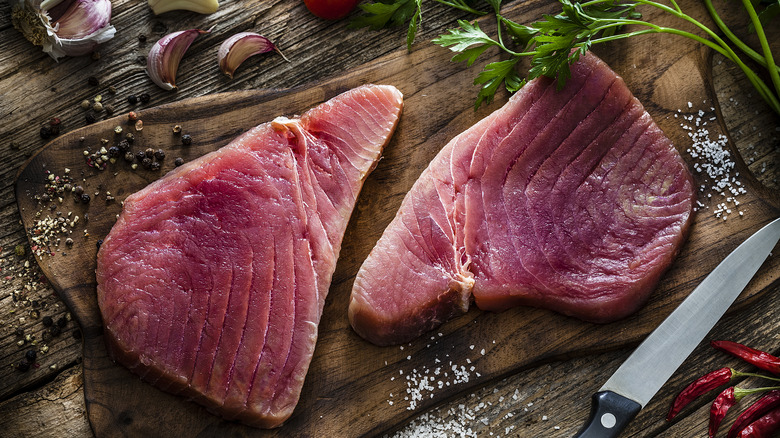The Secret To Making Perfectly Textured Tuna Burgers Every Time
The true test of the home chef is knowing when to underdo it, even when going extra seems too enticing. Chopping a little finer than necessary, maybe adding a bit more fat than required, multiplying garlic cloves like you've just won an allium sweepstakes — these seemingly amplifying actions might pay off sometimes, or they might send your whole recipe hurtling toward ruin. Even simple mixing can be a particularly prickly proposition for misguided overachievers.
Tuna burgers are more vulnerable to overmixing than most foodstuffs. The pre-minced beef used for burgers, for example, signals that their patties are practically finished before they're even packed. Not-so-smooth cake batter is common sense canon. Properly lumpy mashed potatoes not only avoid the dreaded stiffness, but their texture also gives the classic comfort food its homemade character. And since the raw, hearty steaks you'll use to make tuna burgers seem so sturdy, so solidly able to stand up to the power of a food processor or other electronic device, you might feel compelled to pulverize them. Do not do this, though. Machine mixing your fish for what should be nice, light burgers will only end in dry, dense, seafood pucks. Instead, use a fork to successfully make your patty mixture.
How to make tuna burgers at home
When making tuna burgers, start with about a pound of uncooked tuna steaks. A little over or under is fine, as burgers are a surprisingly forgiving vehicle for the versatile saltwater fish. Thawed from frozen works well here, too. However, do not marinate the tuna steaks in advance, as this will break down the fish too soon. Use a sharp knife to mince the steaks. Then, using the back of your largest metal fork, smash the seafood with one to two passes until the tuna is mostly blended and just about able to shape. Stop before it starts to resemble a paste; that means it's overmixed.
Only just before your tuna is nearly fully processed can you add your (appropriately portioned!) alliums like garlic and shallots, a bit of liquid like Worcestershire or fish sauce, herbs, oil, and salt, pepper, and other desired seasonings. Be careful not to introduce too much moisture, however, which can keep your patties from holding together. This is also why we prefer to use about ¼ cup of panko breadcrumbs as a binding agent rather than an egg. Gently fold all the ingredients together and form your patties to about a ½-inch thickness. As with any tuna preparation, be mindful of temperature to avoid overcooking your burgers. On the stovetop, they should only take a couple of minutes on each side over medium heat to finish.

